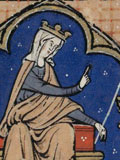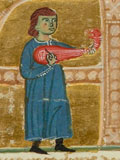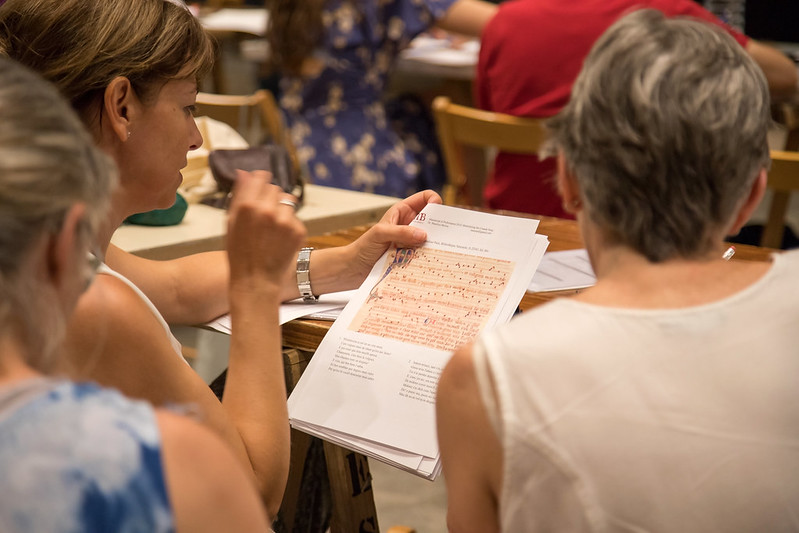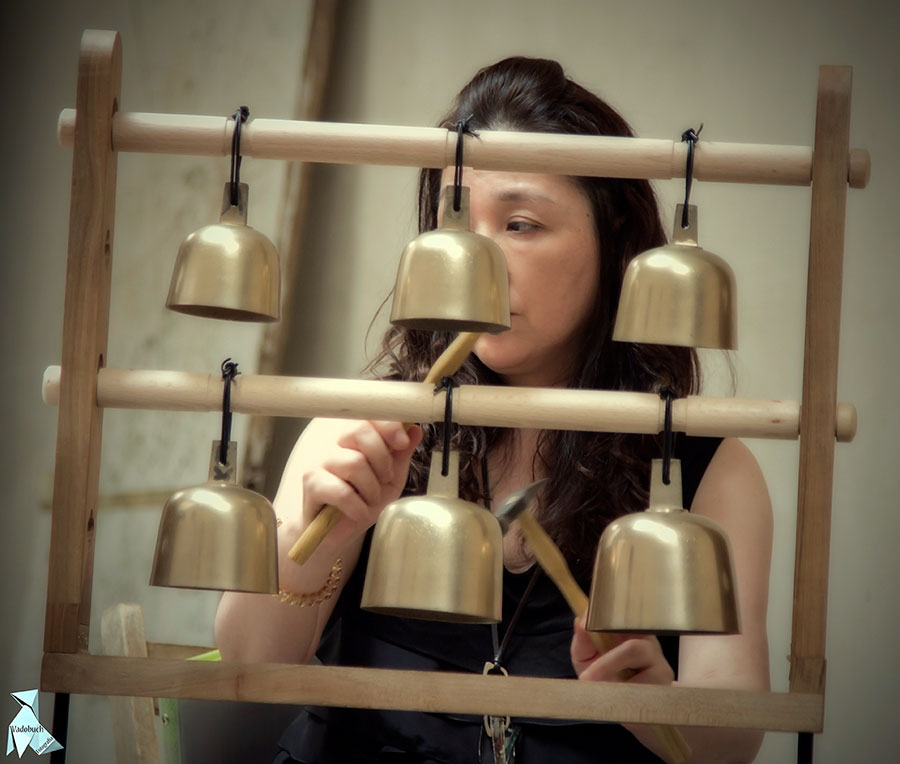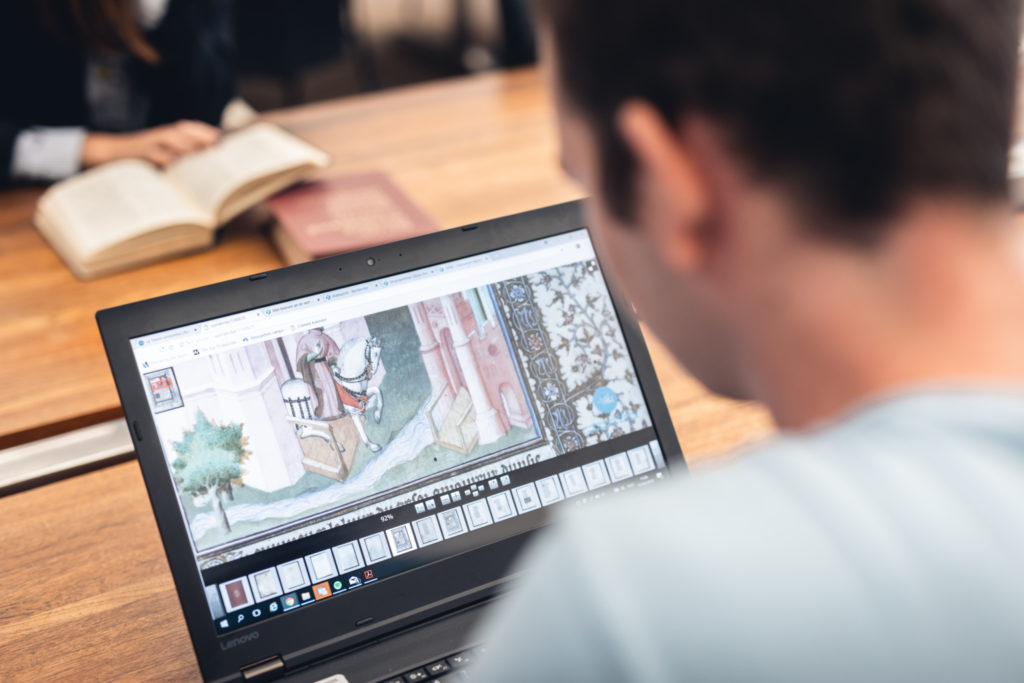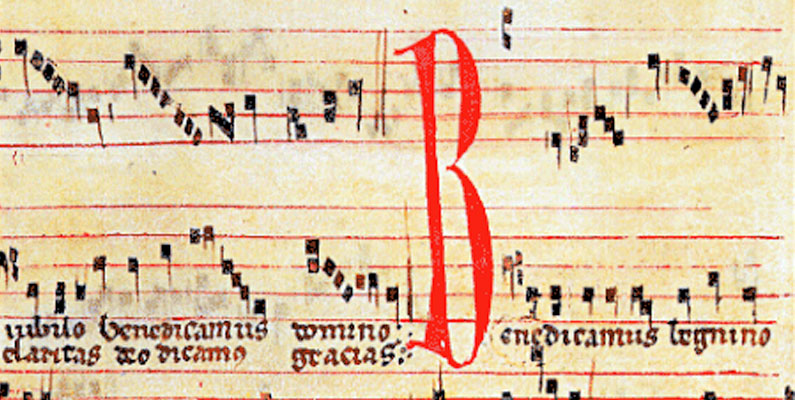UPCOMING ONLINE COURSES
Spring 2024 Online
Study medieval music history, notations, genres, repertoires, sources, performance practice, research techniques, musical iconography, singing, and musical instruments techniques and practices.
Starts February 19, 2024
Medieval Notation
Modal Notation
Modal notation is the key to the music of the School of Notre Dame. Explore this notation through the study of treaties, music manuscripts, and genres. Learn to transcribe it and sight read it directly from the original sources.
Mensural and Franconian Notations
Learn to read Mensural and Franconian notations directly from the original sources following the instructions given by Franco of Cologne and other medieval writers. These notations give access to the monophonic and polyphonic repertoires of the 13th and 14th centuries.
The Earliest Medieval Music Notations (850-1200)
Learn to identify, decipher, and read the neumatic, alphabetic, and staff musical notations used before the development of modal notation. Explore the monophonic and polyphonic repertoires recorded by these notations.
Medieval Music History
Medieval Music History and Performance I (800-1150)
Study the composition, notations, musical and poetic frameworks, genres, performance practices, and social/cultural contexts of the central repertoires composed between 800 and 1150.
Medieval Music History and Performance II (1150-1300)
Explore Western European monophonic and polyphonic religious and secular music composed between 1150 and 1300. Learn about its principal sources, repertoires, notations, compositional techniques, and performance practices.
Performance Practice and Repertoires
The Cantigas of Santa Maria of Alfonso X: Context, Notation, Performance
Learn about the sources, music notation, poetic and melodic composition, and context of the Cantigas de Santa Maria. Explore their possible performance practice following medieval conventions and musicological theories.
The Trouvère Chanson and its Performance
Examine the principal composers and musical sources of the trouvère chanson. Learn about its main poetic-musical structures, genres, historical/cultural context, and performance practice.
The Monophonic Music of Medieval Paris
Explore and learn to perform the vibrant monophonic repertoires of medieval Paris: the conductus, trouvère chanson, The Miracles of Notre Dame of Gautier de Coinci, the Roman de Fauvel, and the Estampies royales.
The Art of the Troubadour Song
Explore the troubadour song repertoire through an in-depth practical study of its composers, sources, music notations, genres, social/historical context, and performance practice (from primary and secondary sources).
Melodic Ornamentation
Learn how to ornament a medieval vocal or instrumental melody by following the ornamentation procedures recorded in medieval sources: pitch inflection, repercussive and tremulous sounds, passing and neighboring tones, and pitch transposition.
Melodic Improvisation (Vocal and Instrumental)
Learn how to improvise vocal and instrumental melodies in different medieval styles following medieval musical and rhetorical compositional techniques, melodic modal practice, and performance conventions.
The Estampies and Danses Royales of the Manuscript du Roi
Study the composition, notation, context, and possible performance practice of the eleven instrumental pieces contained in the Manuscrit du Roi. Create your own performance edition of the whole collection.
Applied Musicology and Performance
Research Techniques and Applied Musicology
Explore a collection of research techniques and musicological approaches that can be utilized to conduct in-depth research on medieval sources. Learn to construct solid historically-informed theories about medieval music and its performance.
Medieval Musical Iconography
Learn to utilize musical subjects depicted in medieval art as sources of information about medieval music’s aesthetics, performers, audiences, physical environments, contexts, musical instruments, performers, and performance practices.
Voice & Musical Instruments in Context
These courses will help you develop historically-informed vocal or instrumental playing techniques, realize and use appropriate medieval performance conventions, and build a relevant performance repertoire.
Medieval Singing
Medieval Singing I: Carmina Burana - An Entry into Medieval Monophonic Song
The Carmina Burana manuscript covers almost every imaginable subject and a variety of musical and poetic genres. For this reason, it is an ideal starting point for any singer wishing to enter the world of medieval monophonic song.
Medieval Singing II: Hildegard von Bingen - The Voice of Divine Inspiration
Learn about Hildegard’s life and her cultural environment, and perform several pieces from her Symphonia armonie celestium revelationum. This course will give you the tools to sing Hildegard’s songs and make your own decisions about performing her compositions.
Medieval Singing III: Dit du chancelier Philippe - A Story of Notre Dame’s most Glorious Chancellor
Study Philippe le Chancelier’s songs while developing an advanced vocal technique while acquiring practical tools for the understanding and performance of any medieval song repertoire.
Frame Drums & Percussion
Frame Drums I: Basic Technique and Repertoires
Learn to play round and square frame drums in medieval style by studying strokes and techniques recorded in medieval sources. You will also discover how to apply medieval rhythmic modes and their ornamentation to the accompany of vocal and instrumental pieces.
Frame Drums II: Rhythmic Accompaniment, Ornamentation, and Improvisation
Learn to accompany songs and to improvise applying different hand, finger, and wrist techniques. Relative medieval Arabic rhythms will be studied and their possible application in medieval European repertoires will be discussed.
Frame Drums III: Accompanying Dance and Women’s Song Repertoires
Explore the performance of frame drums in connection with different dance and women’s song repertoires.
Vielle
Vielle I: Basic Technique, Repertoires and Performance Practice
Develop your vielle playing technique as you work with medieval tunings, improvise preludes and postludes, and perform different northern French repertoires: trouvère and clerical lyrical songs, dance pieces, and instrumental repertoires.
Vielle II: Performing Trouvère and Parisian Repertoires
Develop your vielle playing technique as you work with medieval tunings, learn how to improvise preludes and postludes, and perform different northern French repertoires: trouvère and clerical lyrical songs, dance pieces, and instrumental repertoires.
Vielle III: The Vielle and Jerome of Moravia
Strengthen your vielle technique while studying the tunings, repertoires, and performance practice precepts (ornamentation, phrasing, rhythm) given by Jerome of Moravia in his Tractatus de music (c. 1280).
Citole/Gittern/Psaltery
Citole/Gittern I: Basic Technique and Repertoire
Study the basic playing techniques of the citole or the gittern as you learn to accompany monophonic songs. Explore and perform repertoires appropriate for these instruments.
Citole/Gittern/Psaltery II: Secular and Religious Dance Songs
Develop different plectrum techniques, study numerous ways to accompany monophonic songs and dances, learn to arrange vocal music for the instrument, and perform pieces from the instrumental repertoire.
Citole/Gittern/Psaltery III: The Citole/Psaltery and the Clerical Music Repertoire
Strengthen your citole or psaltery technique and performance practice while exploring a collection of clerical compositions (Latin songs and instrumental pieces) associated to these instruments in medieval literature and art.
Portative Organ
Portative Organ I: Discovering the Portative Organ
Learn the basics of portative organ technique and performance practice while immersing yourself in the world of medieval music and its repertoires.
Portative Organ II: Towards expressivity and flexibility
Expand your repertoire and gain in expressivity and flexibility in your performance practice by developing a strong bellow technique and by learning a variety of articulation practices.
Portative Organ III: The Organ in the Medieval Clerical Universe
Develop a high-level technique (bellows subtle control, precise tuning, expressiveness) as you explore an array of repertoires related to the instrument. Learn about the organ’s function and symbolism in its medieval context.
Harp
Medieval Harp I: Basic Technique and Repertoires
Develop a healthy medieval harp playing technique while you learn about the different types of medieval harps, explore melodic playing and intervallic accompaniment, and perform different medieval music repertoires.
Medieval Harp II: The Harp in 13th-Century France
Continue developing your medieval harp technique, playing style, and improvisation skills (solo or in ensemble) as you explore harp-specific pieces based on French repertoires (trouvères, polyphony, estampies).
Medieval Harp III: The Harp and Anglo-Norman Repertoire
Develop a varied playing style on the medieval harp while exploring the fascinating sounds of the Anglo-Norman repertoire.
Bagpipe/Pipe & Tabor
Bagpipe/Pipe & Tabor: A grant piperie - dance music for wind instruments
Advance your bagpipe (musa) or Pipe and Tabor playing technique while reconstructing a collection of pieces for these instruments based on the pastourelle, dance song, and instrumental music repertoires connected to them in medieval sources.
Enroll Now
Places are limited for each section, so sign up early.





